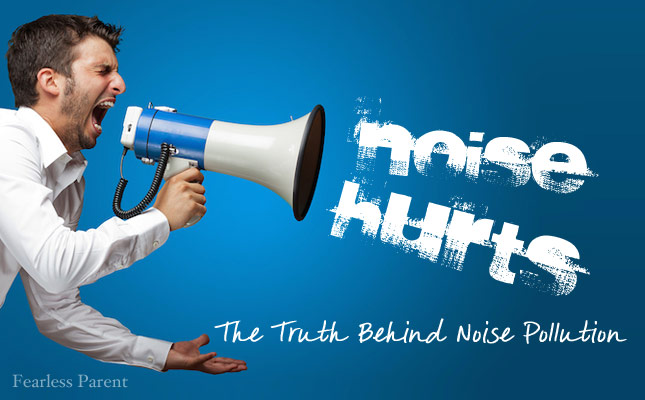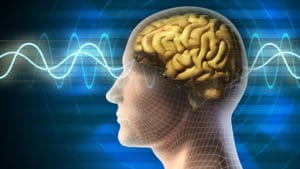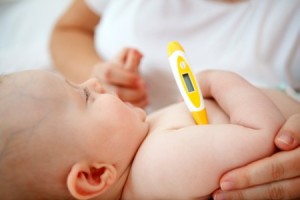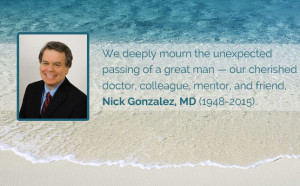I swear I was thinking “location, location, location” when we bought our new house. I was thinking about the Norman Rockwell-esque downtown a stone’s throw from our bedroom. I was thinking meandering strolls to the brownstone library, to the doll-sized antique store, and to Ms. Potter’s heavenly bakery.
But my small town fantasy was rudely interrupted at 9:00 that first night in my new home. And then again at 10:00 and 11:00, and on the hour at every cursed hour thereof. Swayed as I was by the charm of my new town, I hadn’t apparently registered that location, in my case, also included train tracks half a mile away. I was summarily indoctrinated into the ways of train conductors – a group who feel compelled to announce their trains’ oncoming presence with 3 minutes of hell-raising hooting each and every time.
Thinking about my new house was now reduced to “locomotion, locomotion, locomotion.”
Assaulted by noise
I was being consistently assaulted by noise. Predictable noise, yes, but also, loud, unwanted, aggravating noise – a ramped-up version of what we all go through in our contemporary lives, from the time we wake up to the time we go to sleep. TVs, strangers’ voice, police alarms, car tires – the amount of noise we have to tolerate on a daily basis is staggering. And research shows that it can have a deleterious effect on our health.
But, possibly, the greatest culprit of all is technology. An article entitled “Noise Pollution: A Modern Plague” in the peer-reviewed Southern Medical Journal reveals that the decibels emanating from various devices only an arm’s length from our brains are detrimental. They are also insidious — as potentially dangerous as more explosive noises — but, sadly, so much better tolerated by us.
We used to care about the sounds of silence. Did you ever hear about the U.S. government’s Noise Control Act of 1972? It was never repealed but Congress agreed to the Reagan Administration’s proposal to cease funding for that law in 1981.
Health consequences of noise pollution
HEARING LOSS
Noise pollution can cause hearing impairment, plain and simple. According to the Environmental Protection Agency’s Office of Abatement and Control, the human ear cannot safely listen to sound above 70 decibels, which is about the sound of a running washing machine. Leaf blowers, hair dryers and traffic all exceed that level.
Children are particularly vulnerable, bombarded as they are by video games, iPods, concerts, and sports-related hubbub. Astonishingly, the EPA estimates that 5 million U.S. children suffer from Noise-Induced Hearing Loss.
In marked contrast to benign 1980s rates (today’s rates are 30% higher), the American Osteopathic Association reports that an astounding 1 in 5 teens suffer from some form of hearing loss. The AOA says it is almost entirely attributable to the popularity of headphones, powerful enough as they now are to deliver sounds up to 120 decibels and warns parents:
- At 120 db, about the sound level of a rock concert, hearing loss can occur after about 75 minutes.
- MP3 or iPod use should be limited to 60% of maximum volume for no more than 60 minutes per day or 5 minutes per day at maximum volume.
- The older style headphones that cover the entire ear opening are safer.
- If your teen is close but can’t hear you, it’s too loud. A tool developed by Dangerous Decibels can help provide guidance.
- Even mild hearing loss due to excessive noise could lead to developmental delays in speech and language.
Because this type of hearing loss is typically gradual, cumulative, and irreversible, it is important to become familiar with the signs of hearing loss:
- Ringing, buzzing, or whooshing in the ear
- Difficulty understanding speech in noisy places or places with poor acoustics
- A feeling that the ear is plugged
- The need to listen to electronics at a higher volume than before.
SLEEP CHAOS
Uninterrupted sleep is a requirement for good mental and physical health. Needless to say, “nocturnal noise” can kill sleep and it doesn’t take much more than 30 to 45 db to register. Airplanes, traffic, loud neighbors, anything that causes your body to wake or even subconsciously disturb your sleep can lead to fatigue and depression. The kind of night noise I endured caused my blood pressure and heart rate to increase. The Hypertension and Exposure to Noise and Airports (HYENA) study funded by six major airports found a significant exposure-response relationships between hypertension and nighttime noise level (stronger for men).
The human response to noise stimuli during sleep can be seen in EEG, momentary heart rate, continuously recorded non-invasive blood pressure, integrated sympathetic activity, and tidal volume — impacting number of sleep cycles and phase length of the circadian system. The hormone concerned with energy metabolism and food ingestion also plays an important role as a transmitter for intact sleep-wake regulation functioning.
CARDIOVASCULAR VULNERABILITY
Every night in my new home, my pulse would start to race and my heart would beat faster. These are classic signs of panic. My body was reacting to stress. Southern Medical Journal reports that sudden or uncontrollable noise can trigger stress. The human stress response is set in motion when the body perceives something as a threat — in my case the noise of the trains — which the body attempts to ward off by releasing hormones that in turn pump adrenaline into the bloodstream leading to the heightened breathing, heart rate, and blood pressure that I knew so well.
MENTAL AND COGNITIVE HEALTH
Noise activates the central nervous system. This may enhance adverse neuronal excitations and metabolic abnormality and lead to severe diseases caused by elevated cortisol levels. Prolonged exposure to noise can create and increase anxiety and depression. Participants in a 2005 Sardinian study evaluated participants living near an airport and found they reported higher levels of generalized anxiety disorder than did their counterparts living further away from the airport.
Children dealing with Noise-Induced Hearing Loss experience fatigue, headaches, nervousness, depression, and anger, as well as decreased educational achievement and impaired social-emotional development. They score lower significantly lower on basic skills and exhibit behavioral problems and lower self esteem. Self-reported mental health was linked to ambient noise in children with a history of early biological risk, including low birth rate and preterm birth.
Remember how we used to roll our eyes when mom said, “Shut that off… the noise is driving me crazy!”? Maybe she wasn’t off base after all.
***
In my case, the sounds of locomotion were knocking me off center, making me tense and anxious. After researching this subject, I was relieved to learn that I wasn’t unhinged and it made me determined to prevent negative long-term effects on my health. Practicing relaxation techniques and placing a sound machine on my nightstand were steps in the right direction (cautionary note for infants). But the real difference came from the purchase of soundproof windows. They created a significant barrier to external noise. My anxiety levels dropped. And I had stumbled onto my professional calling.
Note: The author thanks Louise Kuo Habakus for her editorial and research assistance.

Michael Lentin is founder and CEO of CitiQuiet, a New York City-based company that has been in business for 20 years. He is passionate about sound proofing as a way for families living in noisy, urban areas to improve their quality of life. Michael is a father of two and lives in Manhattan with his family.
Resources
- Aircraft Noise and Sleep Disturbance. Environmental Research and Consultancy Department, 2009.
- Arousals and aircraft noise – environmental disorders of sleep and health in terms of sleep medicine. Noise Health. 2004 Jan-Mar;6(22):15-26.
- Decibel Exposure Time Guidelines. Dangerous Decibels.
- Environmental noise and mental health. 9th International Congress on Noise as a Public Health Problem, 2008.
- Environmental Noise Pollution in the United States: Developing An Effective Public Health Response. Environ Health Perspect. Feb 2014; 122(2): 115–119.
- Fighting Noise Pollution: A Public Health Strategy. Environ Health Perspect. Feb 2014; 122(2): A58.
- Guidelines for Community Noise. World Health Organization, 1999.
- Hear today… hear tomorrow? How can man learn to control the noise that not only annoys but may actually be making him ill? The Rotarian, 1976 Apr; 34-37.
- Hearing Loss and Headphones – Is Anyone Listening? American Osteopathic Association.
- Hypertension and exposure to noise near airports: the HYENA study. Environ Health Perspect. 2008 Mar;116(3):329-33. doi: 10.1289/ehp.10775.
- Information on levels of environmental noise requisite to protect public health and welfare with an adequate margin of safety. Environmental Protection Agency, 1974.
- Living alongside railway tracks: Long-term effects of nocturnal noise on sleep and cardiovascular reactivity as a function of age. Environ Int. 2010 Oct;36(7):683-9. doi: 10.1016/
- Noise perception, heart rate and blood pressure in relation to aircraft noise in the vicinity of the Frankfurt airport. Clin Res Cardiol. 2007 Jun;96(6):347-58. Epub 2007 Apr 10.
- Noise Pollution: A Modern Plague. South Med J. 2007 Mar; 100(3):287-94.
- Silence’s Loud Goodbye. Pacific Standard, 2012 Jul.
- Sound in the Air. Osong Public Health Res Perspect. 2014 Apr; 5(2): 75–76.













Can you address loud music in gyms? I remember reading a study years ago (and I can’t find it now, I wish I could) that loud music in gyms contributes to hearing loss. I keep asking the instructors in my women’s gym classes to turn down the music but they keep ignoring me because they consider it an individual preference – the 20-somethings like it really loud.
But I tell them that it’s actually not safe to have the music that loud; and the young members who want it loud probably have already suffered hearing loss from playing music really loud through headphones.
And I tell them that it should not be a matter of individual preference: some people would like to smoke in the gym while others would prefer it smoke-free, and the decision is made based on the health of all members.
Any evidence or research study you could provide that would bolster my argument that loud music is a health hazard would be greatly appreciated.